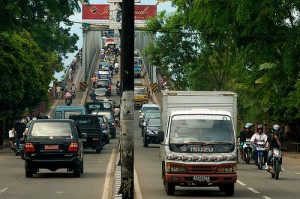by Sarah Sensamaust | Oct 16, 2013 | 2013, Africa, Being Thankful, Cultural Differences, Expat Life, Health, Hospital, World Motherhood
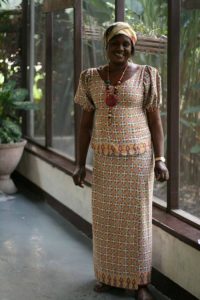
This summer our three-year-old daughter had her tonsils and adenoids removed. Many children have this routine surgery, but we still teared-up a bit as they wheeled her away. Then we enjoyed our coffee while we waited for the surgeon to tell us everything went “just fine.” Because we knew it would be. Even if there was a complication we rest assured in the fact that we were in the United States.
This summer Mama Youyou, our nanny in Congo, also had a routine surgery and we were scared out of our minds. Mama Youyou waited to have her surgery until we left for our summer break in the States so she wouldn’t have to take off work. (Bless her.) When she told us she needed the surgery, we did everything we could to make sure she had access to good health care.
You see, Mama Youyou has already outlived her life expectancy as a Congolese woman. Complications during routine surgeries in DRC, and lack of access to medical care, are the type of thing that keeps her life expectancy rate down. (more…)
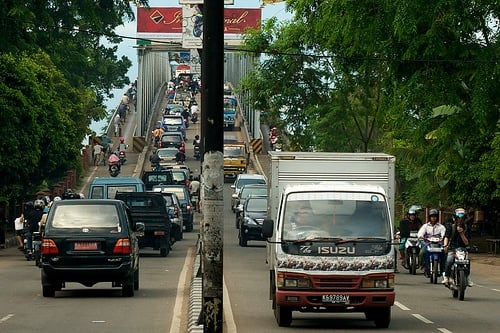
by Shaula Bellour (Indonesia) | Oct 10, 2013 | 2013, Expat Life, Family, Indonesia, Living Abroad, Shaula Bellour, Transportation
If you are new to Jakarta, macet – or traffic jam – is one of the first Indonesian terms you will learn. Jakarta traffic is notoriously bad and affects every aspect of life in the Big Durian. It determines where you live, shop, work, go to school – and how much you can do in a day.
With a metropolitan population of 28 million people and no rapid transit system, Jakarta is plagued with major transportation issues. Every day more than 13 million cars, trucks, buses and motorbikes hit the city’s flood-prone roads. With traffic speeds averaging below 20 kph and thousands of new vehicles joining the gridlocked throngs every day – it’s a recipe for constant congestion and frustration.
Although it is impossible to completely avoid traffic, I am lucky in many ways. With the exception of the school run, most of my daily life takes place within our local neighborhood: my office, gym, shops, restaurants, friends and activities are all within 15 minutes from home. This makes things infinitely easier.
Since my husband bikes to work (yes, really!), I have free access to our car. And like most people I know, we have a driver, which is fortunate since I wouldn’t dream of attemping to drive here.
Jakarta driving is not for the faint-hearted. Traffic rules (and lanes) are mostly suggestions, driving strategies are creative, a buffer of a few inches between cars is considered normal, and motorcycles are everywhere. Despite it all, there is a remarkably zen approach to driving here, with little road rage and relatively few accidents. (more…)
Shaula Bellour grew up in Redmond, Washington. She now lives in Jakarta, Indonesia with her British husband and 9-year old boy/girl twins. She has degrees in International Relations and Gender and Development and works as a consultant for the UN and non-governmental organizations.
Shaula has lived and worked in the US, France, England, Kenya, Eritrea, Kosovo, Lebanon and Timor-Leste. She began writing for World Moms Network in 2010. She plans to eventually find her way back to the Pacific Northwest one day, but until then she’s enjoying living in the big wide world with her family.
More Posts

by Natalia Rankine-Galloway (Morocco) | Oct 2, 2013 | 2013, Africa, Cultural Differences, Culture, Expat Life, Family Travel, Kids, Living Abroad, Morocco, Moving, Relocating, USA, World Motherhood
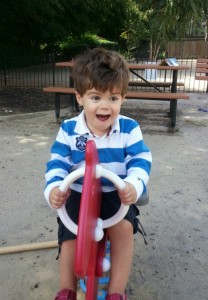
The customs officer handed us back our passports at Dulles International and said, “Welcome home.”
All my life I’ve been a global nomad, so home has always been a fluid concept. If you add up the years spent in any one country, the US now comes out on top, which I suppose wins it the title of “home” (congrats America). But given that we’d just left behind our comfortable house in Morocco for temporary lodging with family and the fearful prospect of finding something new with our now drastically diminished buying power, home seemed to be farther away than ever.
Starting on the drive back from the airport and throughout the rest of our first weekend home, I was confronted with many things I had missed and a few I hadn’t.
Rubber surfacing on the playground: missed!
Gridlock around the DC area: Could have gone my whole life without seeing again.
Trader Joe’s: Be still my heart!
Inflammatory Cable News: See DC gridlock above. (more…)

Natalia was born a stone's throw from the Queen's racetrack in Ascot, UK and has been trying to get a ticket to the races and a fabulous hat to go with it ever since. She was born to a Peruvian mother and an Irish father who kept her on her toes, moving her to Spain, Ireland and back to the UK before settling her in New York for the length of middle and high school. She is still uncertain of what she did to deserve that.
She fled to Boston for college and then Washington, D.C. to marry her wonderful husband, who she met in her freshman year at college. As a military man, he was able to keep her in the migratory lifestyle to which she had become accustomed. Within 5 months of marriage, they were off to Japan where they stayed for a wonderful 2 and one half years before coming home to roost. Baby Xavier was born in New York in 2011 and has not slept since.
A joy and an inspiration, it was Xavier who moved Natalia to entrepreneurship and the launch of CultureBaby. She has loved forging her own path and is excited for the next step for her family and CultureBaby.
Natalia believes in the potential for peace that all children carry within them and the importance of raising them as global citizens. She loves language, history, art and culture as well as Vietnamese Pho, Argentinian Malbec, English winters, Spanish summers and Japanese department stores...and she still hopes one day to catch the number 9 race with Queen Liz.
You can find her personal blog, The Culture Mum Chronicles.
More Posts

by hjunderway | Sep 9, 2013 | Culture, Expat Life, France, World Motherhood, Younger Children
 Two years ago, I said goodbye to the 100+ friends that had started off as co-workers and quit my job in preparation to leave the United States and move with my husband and son to Paris, France.
Two years ago, I said goodbye to the 100+ friends that had started off as co-workers and quit my job in preparation to leave the United States and move with my husband and son to Paris, France.
Working in the mental health field, where burnout rates are a true reality and there are constant shifts in schedules and treatment, we had a saying; “Change is hard.” We said this a thousand times to help solidify the “change” in our minds and to mentally prepare ourselves for the differences between the experiences we had before the transition and the ones we braced ourselves for afterwards.
Change is hard. Again my family is faced with major changes as our expatriate contract is unexpectedly ending and we are returning home to the United States. However this time, we are leaving with a four-year old who attends school daily, has friends, and identifies Paris as “home.” Our son speaks two languages, prefers baguette to sandwich bread, and thinks everyone has gouter at 4:00 p.m.
When we arrived in Paris, HJ was only two years old and to him, home was wherever his parents and toys were. We had to do very little to prepare him for the transition, but realizing that he is now a little person with thoughts and most importantly, feelings, preparation to move back to the United States will take on much more of a significance for us.
How do you prepare a young child for such a big change? Do you tell them months in advance, or do you wait until the week before? Do you play up the excitement of the move or downplay it to ease anxieties?
As a therapist, and most importantly, as a mother, I feel it truly depends on the child. For HJ, waiting approximately two weeks before the movers come to pack up our apartment for the overseas shipment will be the right time. For younger children, this might be too long of a time frame for them to understand and for older kids, who are more emotionally invested in their expatriate community, may need substantially more time to process.
My son doesn’t understand weeks or months yet. He knows “now,” “soon,” and “later.” So for him and for children who don’t understand time frames yet, parents can utilize a paper chain by simply cutting strips of colored paper and stapling them together to form a chain. Each link represents a day; link enough to cover the amount of time you have before the transition day arrives. For older kids, they can write something they are excited about or conversely, sad about the transition. Each day as you move closer towards the change, you can rip off a link in the chain, and kids can visually see the transition day as it approaches.
Once your time line has been established, the process of understanding the change can begin, which can be accomplished in a variety of ways. The first is through writing a social story; this is a story you can write in a basic word document that will outline the specifics of the upcoming change.
For our family, we’ll talk about returning home to America, feature photos of our home in the US as well as those of preferred family members. The focus will be on what things will change for our son when we leave. Including pictures of his new school and perhaps of the teachers who will be working with him will be helpful. We’ll also emphasize the fact that at school, his teachers and classmates will speak English, which is a huge change for our son. Another way to help prepare for the upcoming change is to have your child participate in packing, allowing them to feel like they have control over the change. For our son, this means having him pack his own suitcase of preferred clothing and toys.
The second thing is to, in essence, mourn the loss of the experience your child has had. Allowing them to share feelings of sadness and loss in regards to saying goodbye to friends they’ve made is an important part of the process. Depending on the age of your child or their emotional development, it may be helpful to purchase an address book, gathering mailing/email addresses, as well as Skype names. For close friends, planning Skype dates ahead of time can be helpful and gives kids something to look forward to.
Another way to embrace and remember the specifics of the current experience, it may be helpful to spend time seeing favorite places, gathering mementos, and taking lots of pictures. Using online software like Shutterfly, you can create photo books for children to look at if they are feeling sad after the transition.
Change is hard, and by sharing this process with my son, I’m hopeful that I too can prepare myself for the transition from France back to America!
Moms, what are some tips you might have to help moms like me help their children with changes and transitions?
This is an original post for World Moms Blog by Jacki of HJUnderway in Paris, France, who is preparing to move back to the United States with her husband and son, HJ, aged 4.
The photograph used in this post is credited to the author.
Jacki, or “MommaExpat,” as she’s known in the Internet community, is a former family therapist turned stay-at-home mom in Paris, France. Jacki is passionate about issues as they relate to mothers and children on both domestic and international scenes, and is a Volunteer Ambassador for the Fistula Foundation. In addition to training for her first half marathon, Jacki can be found learning French in Paris and researching her next big trip. Jacki blogs at H J Underway, a chronicle of her daily life as a non-French speaking mom in France.
More Posts

by World Moms Blog | Aug 17, 2013 | Belgium, Expat Life, World Tour
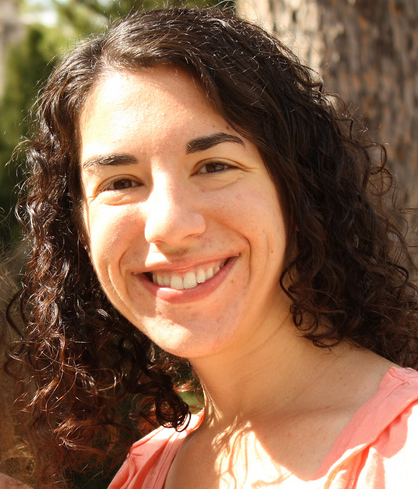
“An American Toddler in (not quite) Paris”
It’s 2 P.M. and my toddler is tuckered out and ready for his nap; and—let’s be honest—I’m ready for some coffee and couch time. However, there is one small problem; the neighborhood organ grinder has set up shop right outside our apartment.
Welcome to life in Brussels, Belgium.
There are obvious differences between living in the U.S. and living in Belgium; a royal family, socialized medicine, and Nutella encouraged as breakfast fare, just to name a few. But raising an American toddler here in Belgium has brought out some of the more unanticipated nuances between our home country and temporarily adopted one.
The differences between the U.S. and Belgium are by no means all negative. We will soon be taking our son to Paris for his third visit; he regularly has play dates with pals from Italy; Australia, Denmark, Sweden, Germany and Russia; and he’s a big fan of Pellegrino — all of which would probably not be the case if we were still in the U.S. But, discovering the differences between our old home and new one adds a little levity to the challenge of raising our son across the ocean from most of our friends and family.
It’s finally summer in Brussels, which means swimming—albeit indoors since it’s rarely hot enough to swim outside. Just like in the States, there are plenty of pools to take your kid to, but there is one difference that never fails to delight me about swimming in Belgium. Everyone, even your bald as a cue ball baby, is required to wear a swim cap. So out of all the things that can come out of babies and end up in the pool, people in Belgium are most concerned about hair. Très Bien!
The language differences are always entertaining. One of my son’s go-to activities while we walk around Brussels is to point out people who are wearing glasses, by yelling, aptly, “glasses!” as they pass by. This is all well and good, except for the fact that the way he says it makes it sound more like, “ca ca” i.e. the French word for ‘poo’. It’s probably not hard to imagine the looks you get from strangers when your kid yells ‘poo’ and points enthusiastically at them. Merde!
Once during a walk, a woman (who wasn’t wearing glasses, mercifully) said something to my son that sounded like, “mechant”, a French word meaning “mean or bad.” I was all set to spew forth my best French insults when I realized she had actually said, “il chant”, meaning, “he’s singing” and in fact, he was. Our little guy loves to sing and play music; so much so that we just might make an organ grinder out of him yet.
This is an original post to World Moms Blog by Mindi, an American expat who has been living in Brussels, Belgium for the past 5 years with her rocket scientist/cycling journalist husband and toddler son. Mindi is a professional social worker, amateur cultural anthropologist and failing French student who loves Belgian waffles, mussels, and absurdity, and who misses American bagels, mint chocolate chip ice cream, and pragmatism. Mindi’s son tweets his daily displeasures at: twitter.com/Parler_Toddler.
Photo credit to the author.
World Moms Blog is an award winning website which writes from over 30 countries on the topics of motherhood, culture, human rights and social good. Over 70 international contributors share their stories from around the globe, bonded by the common thread of motherhood and wanting a better world for their children.
World Moms Blog was listed by Forbes Woman as one of the "Best 100 Websites for Women 2012 & 2013" and also called a "must read" by the NY Times Motherlode in 2013. Our Senior Editor in India, Purnima Ramakrishnan, was awarded the BlogHer International Activist Award in 2013.
More Posts

by Mannahattamamma (UAE) | Jul 24, 2013 | Cultural Differences, Economy, Expat Life, Human Rights, Older Children, Politics, UAE, World Motherhood
 Decades ago, as I moved around Manhattan from cheap apartment to cheap apartment, most of my stuff fit into “New York luggage:” big black Hefty garbage bags. Now that I’ve acquired children, however, and all their junk precious possessions, the New York luggage has been retired. Now I have to hire professionals, like the team of four guys who hauled our furniture and approximately eighty gazillion boxes into long-term storage when we moved from New York to Abu Dhabi two years ago. It took us more than three days to finish that move—I’m sure those movers still have a dart board with our apartment number at its center.
Decades ago, as I moved around Manhattan from cheap apartment to cheap apartment, most of my stuff fit into “New York luggage:” big black Hefty garbage bags. Now that I’ve acquired children, however, and all their junk precious possessions, the New York luggage has been retired. Now I have to hire professionals, like the team of four guys who hauled our furniture and approximately eighty gazillion boxes into long-term storage when we moved from New York to Abu Dhabi two years ago. It took us more than three days to finish that move—I’m sure those movers still have a dart board with our apartment number at its center.
That move almost killed me—and I’m not even including the hours we spent packing and re-packing the twelve suitcases we were lugging to Abu Dhabi, in a desperate attempt to make sure that no one suitcase went over the weight limit for checked bags.
So after that move, moving from one neighborhood in Abu Dhabi to another was a piece of cake: on moving day, a squad of ten men showed up armed with huge rolls of bubble wrap and cardboard; they fanned out across our apartment and hey presto! the contents of our apartment vanished in a few days.
When we moved from New York, I don’t remember thinking much about the difference between my life and the lives of the men putting our boxes in the truck. At the risk of generalizing, I assumed that I had more education than they did, and that my children probably went to “better” public schools than theirs did (if even they had kids). I mean, I know I’m generalizing here—and maybe the movers were PhD candidates in philosophy out to make an extra buck, but that seems like a stretch. (more…)
After twenty-plus years in Manhattan, Deborah Quinn and her family moved to Abu Dhabi (in the United Arab Emirates), where she spends a great deal of time driving her sons back and forth to soccer practice. She writes about travel, politics, feminism, education, and the absurdities of living in a place where temperatures regularly go above 110F.
Deborah can also be found on her blog, Mannahattamamma.
More Posts
Follow Me:




